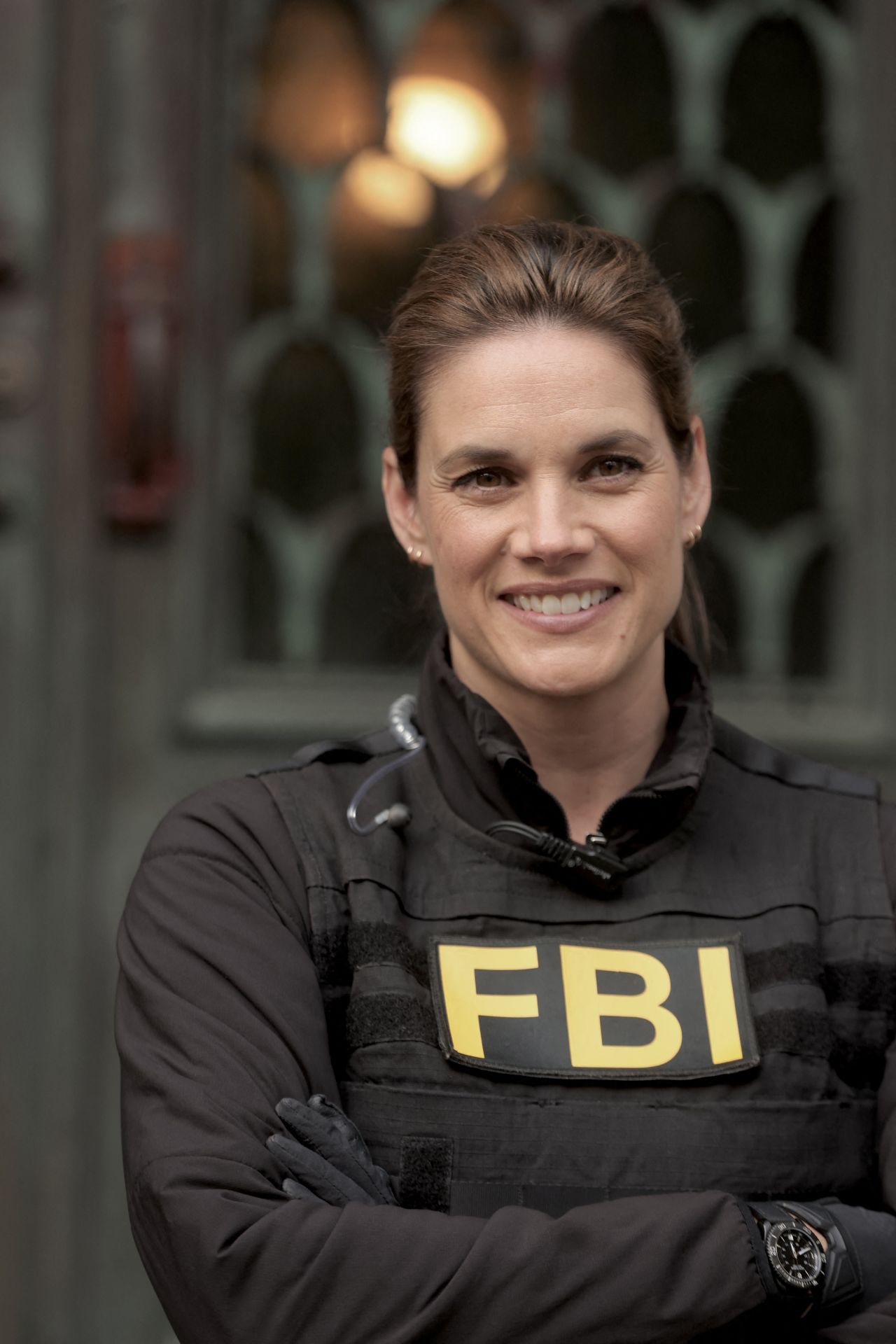Missy Peregrym Nude Misinformation: The Truth Revealed! Is It Real?
Have you ever wondered how quickly a celebrity's name can become entangled in a web of online falsehoods? In today's digital environment, public figures are frequently targeted by misleading stories, and Missy Peregrym is no exception. The phrase "Missy Peregrym nude" has been circulating, causing consternation and raising concerns about privacy, consent, and digital ethics. But what is the real story? Let's dig in and separate fact from fiction.
Missy Peregrym is a well-known Canadian actress and model who has had a successful career in Hollywood. Like many public figures, her name has been used in misleading or sensational headlines on occasion. When the term "nude" is used in conjunction with her name, it can be deceptive and harmful, as it frequently leads to the dissemination of misinformation that harms not only her reputation but also the public's understanding of digital privacy.
In this article, we will look into the origins of this misinformation, discuss its impact on individuals and society, and provide practical solutions to combat it. Whether you're a Missy Peregrym fan or simply interested about the subject, this piece seeks to highlight the importance of critical thinking and digital awareness.
- Black Adam Film The Untold Story Of The Blockbuster Hit
- Why Filmyzilla Hollywood Movies Download Is A Gamechanger In The Streaming World
| Full Name | Missy Peregrym |
|---|---|
| Date of Birth | March 3, 1983 |
| Place of Birth | Vancouver, Canada |
| Occupation | Actress, Model |
| Known For | "The 4400," "Rookie Blue," "Z Nation," "FBI" |
| Spouse(s) | Zachary Levi (m. 2014; div. 2015), Tom Oakley (m. 2018) |
| Children | Two |
| Official Website | www.missyperegrym.com |
To begin, let us define what this term actually means. When people search for "Missy Peregrym nude," they may come across links that claim to provide private photos or content. These are frequently scams designed to generate clicks or spread malicious software. The internet is rife with clickbait headlines that prey on people's curiosity, and this is one such instance.
Understanding the context is essential. Missy Peregrym, as a public figure, has received her fair share of media attention, but this does not imply that her privacy should be jeopardized. It is critical to approach such issues with skepticism and to double-check sources before believing or disseminating any information.
One must acknowledge the troubling trend of exploiting a person's image for malicious purposes, especially when it comes to generating scandalous content. The actress, known for her roles in series such as "Rookie Blue" and "FBI," has inadvertently become the subject of deceptive online searches, a stark reminder of the internet's darker corners. It is imperative to understand that such search terms are often clickbait, leading to nothing more than potential scams or malware-laden sites. In reality, the promise of exclusive content is nothing but a mirage.
- Filmyzillacom Hollywood Movie In Hindi Your Ultimate Destination For Bollywoodstyle Entertainment
- Filmyzilla Mirzapur S1 The Ultimate Guide To Downloading And Streaming Season 1
The proliferation of these deceitful searches underscores a wider societal issue: the internet's impact on the lives of public figures. Celebrities like Peregrym are frequently caught in a web of misinformation, which not only affects their public image but also raises serious concerns about their personal safety and privacy. The ease with which false information spreads necessitates a more vigilant approach to online engagement.
The quest for "Missy Peregrym nude" or any similar terms directed at other personalities, opens a Pandora's Box of ethical and legal issues. It speaks of a culture where sensationalism triumphs over respect and human decency. It also highlights the crucial need for stricter regulations and educational efforts to combat the spread of disinformation. The misuse of a celebrity's name in this manner is a form of exploitation that can have devastating consequences, both personally and professionally.
The concept of digital reputation is another vital aspect of this conversation. A single search can lead to a cascade of potentially damaging information, which can be extremely difficult to correct or erase. This can affect professional prospects, social interactions, and even one's mental health. Celebrities, being in the public eye, are particularly vulnerable, but anyone can become a victim of online smear campaigns.
It is vital for people to understand the severity of these situations and take proactive steps to protect themselves and others. This involves educating oneself about online safety, practicing caution while clicking on links, and reporting any suspicious content. Furthermore, it entails fostering a culture of respect and empathy in our digital interactions. We must remember that behind every name and every profile, there is a human being deserving of dignity and consideration.
The conversation around misinformation should also highlight the critical need for technology companies to take responsibility for the content that their platforms host. Algorithms should be improved to prioritize factual accuracy over sensationalism, and content moderation policies should be strictly enforced. Only then can we hope to create a safer and more reliable online environment.
The issue of "Missy Peregrym nude" and similar cases serves as a wake-up call. It reminds us of the urgent need to address the pervasive problem of misinformation and exploitation in the digital age. By increasing awareness, promoting critical thinking, and fostering a culture of respect and accountability, we can begin to make a meaningful difference. It's time we challenge the status quo and stand up for the values of truth, privacy, and human dignity in the online world.
The impact of such misinformation extends beyond the individual and seeps into the fabric of society, warping perceptions and eroding trust. A digitally literate society is not merely desirable; it is essential for informed decision-making, democratic participation, and the overall well-being of its citizens.
- Sensationalism: Headlines promising scandalous or exclusive content are attention-grabbing.
- Lack of Critical Thinking: Many people do not bother to check the credibility of the sources they find.
- Algorithmic Bias: Social media algorithms frequently prioritize content that generates high engagement, even if it is false or misleading.
These factors combine to create the perfect storm for the spread of misinformation. So, how can we combat it?
Before we get into the matter in further depth, let's take a moment to appreciate Missy Peregrym. Here is a quick rundown of her life and career.
Missy Peregrym was born in Vancouver, Canada on March 3, 1983. She began her career as a model before quickly transitioning into acting, landing roles in prominent television shows and films. "The 4400," "Rookie Blue," "Stick It," and "FBI" are among her most well-known works. Missy is also known for her mental health advocacy and involvement in various charitable endeavors outside of her acting career. In 2014, she married Zachary Levi, but the couple divorced in 2015. She married Tom Oakley in 2018, and they have two children.
Misinformation has serious consequences for celebrities as well as ordinary people. False stories can harm the reputation and invade the privacy of someone like Missy Peregrym, whose career and personal life are constantly scrutinized. Here's how:
- Reputation Damage: Misleading headlines can create a negative image of a celebrity, even if they are blameless.
- Privacy Invasion: Claims of leaked photographs or private information may result in a breach of personal boundaries.
- Emotional Distress: Being constantly targeted with false information can have a negative impact on one's mental health.
It is vital to remember that celebrities are also people, and they deserve the same level of respect and privacy as everyone else.
If you are a fan of Missy Peregrym or any other celebrity facing similar challenges, here's how you can assist.
- Verify Information: Always double-check the source's reliability before sharing anything.
- Report False Content: Most social media platforms allow users to report misleading or harmful content.
- Spread Awareness: Educate others about the hazards of misinformation and encourage them to think critically.
Digital privacy is a growing concern in today's society, and it affects more than just celebrities. Anyone can be a victim of data breaches, hacking, or unauthorized distribution of personal information. So, how do we safeguard ourselves and others?
Here are some helpful hints for protecting your online privacy.
- Use Strong Passwords: Avoid using passwords that are simple or easy to guess.
- Enable Two-Factor Authentication: This adds an extra layer of security to your accounts.
- Be Cautious with Links: Do not click on dubious links, especially those promising exclusive content.
- Limit Personal Information Sharing: Be aware of what you share online and with whom.
By following these steps, you can significantly reduce your risk of falling victim to digital scams and misinformation.
Consent is a fundamental aspect of digital interactions. Obtaining explicit permission from all parties involved is essential, whether it is sharing photos, videos, or any other type of content. Any unauthorized use of Missy Peregrym's name or image without her consent is a violation of her rights.
Here is why consent is important.
- Respect for Individuals: It ensures that people's privacy and dignity are respected.
- Legal Implications: Sharing content without consent may have legal consequences.
- Building Trust: Respecting consent promotes trust and accountability in digital environments.
As internet users, it is our responsibility to uphold these principles and promote a culture of respect and accountability.
Celebrities like Missy Peregrym have legal protections against the unauthorized use of their likeness or personal information. While these laws vary by country, they generally aim to protect individuals' rights to control how their image and identity are used.
For example, in the United States, celebrities can file lawsuits for invasion of privacy or defamation if their rights are violated. These legal measures serve as a deterrent to the spread of misinformation and unauthorized content. The laws related to defamation and invasion of privacy provide a framework within which celebrities can seek redress for damages to their reputation and personal space. The process of seeking such legal recourse, however, can be complex, often requiring substantial resources to navigate the legal system effectively.
In cases of online exploitation, the Digital Millennium Copyright Act (DMCA) can also be invoked to remove unauthorized content from websites, providing a degree of control over copyrighted material. Moreover, some states have enacted laws specifically targeting the non-consensual sharing of intimate images, often referred to as "revenge porn" laws, which can offer further protection to victims of online privacy violations.
While these legal avenues exist, the enforcement of digital privacy laws can be challenging due to jurisdictional issues and the difficulty of tracking down anonymous offenders. As such, celebrities and their legal teams often rely on a combination of legal strategies, public relations efforts, and collaboration with social media platforms to combat the spread of misinformation and unauthorized content.
The complexities of these legal battles underscore the need for a comprehensive approach to protecting celebrities' rights in the digital age. This includes not only robust legal frameworks but also increased awareness, education, and ethical conduct among internet users.
Now that we understand the problem, let's talk about solutions. How can we combat misinformation and promote digital literacy?
One of the most effective ways to combat misinformation is through education. Teaching people how to think critically and evaluate sources is key to creating a more informed society. Here are some strategies:
- Encourage Fact-Checking: Promote the use of reliable fact-checking websites and tools.
- Teach Media Literacy: Help people recognize the signs of fake news and misleading content.
- Promote Responsible Sharing: Encourage users to verify information before sharing it with others.
By equipping people with the skills they need to navigate the digital landscape, we can reduce the spread of misinformation and create a safer online environment.
- Filmyzilla Dc Your Ultimate Destination For Movie Downloads
- Why Filmyzilla Despicable Me Is A Mustvisit For Animation Lovers

Missy Peregrym nackt, Nacktbilder, Playboy, Nacktfotos, Fakes, Oben Ohne

Missy Peregrym Style, Clothes, Outfits and Fashion • CelebMafia

Missy Peregrym Missy Peregrym In 2019 Joanna Barnes H vrogue.co